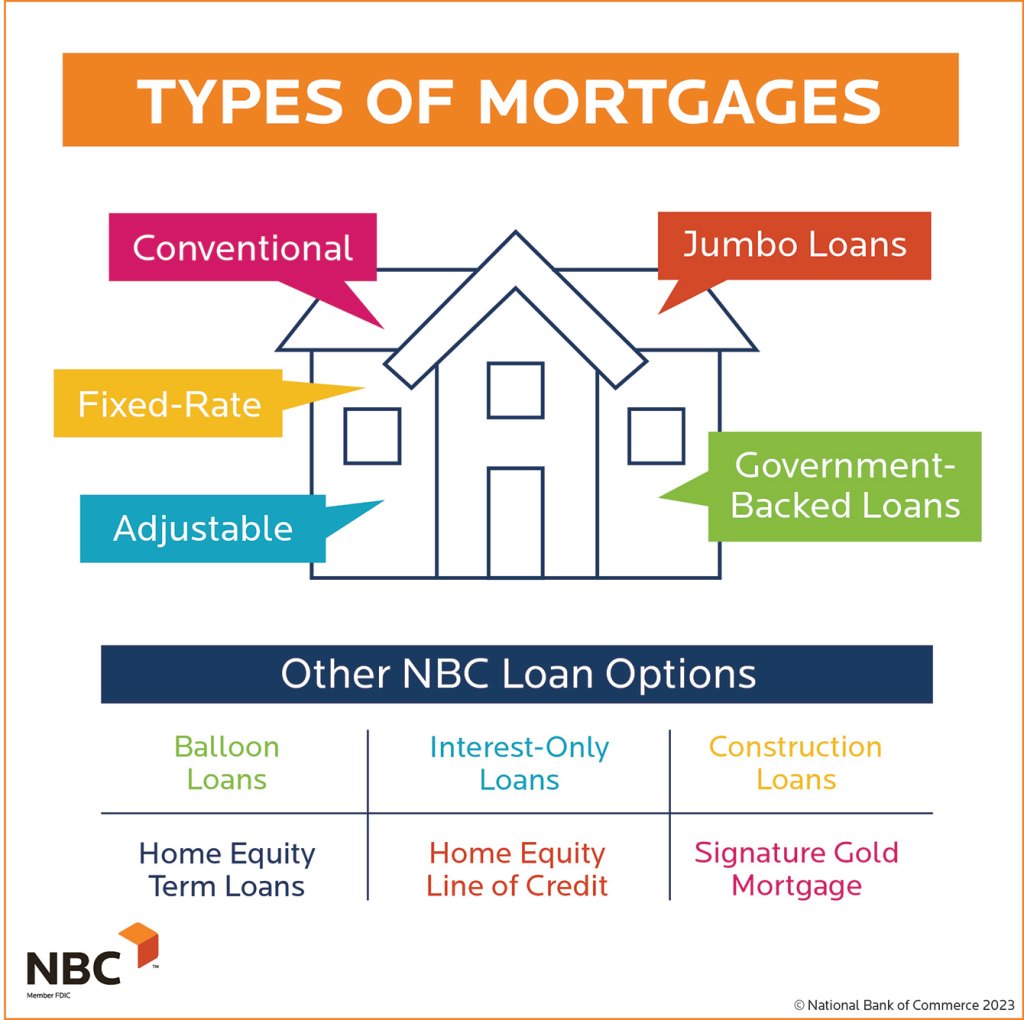A Comprehensive Guide to Home Loans: Provider and Options Explained
Charting the globe of home finances can be intricate. Numerous options exist, each with one-of-a-kind features and ramifications for possible house owners. Comprehending the distinctions between traditional and government-backed fundings is crucial. The application process entails meticulous documentation and pre-approval steps that many neglect. As debtors start on their home-buying journey, knowing just how to manage these obligations properly can indicate the difference between monetary stability and challenge. What strategies can empower them on this path?
Understanding Home Loans: Types and Terminology
Understanding the various kinds of mortgage and their associated terms is crucial for potential property owners, as it equips them with the understanding needed to make educated economic choices. Home mortgage can be generally categorized right into fixed-rate and adjustable-rate home loans. Fixed-rate mortgages keep a regular passion price over the life of the car loan, supplying security in monthly settlements. Cash Advance. Alternatively, adjustable-rate mortgages include rate of interest that might fluctuate after a preliminary fixed duration, possibly causing lower first repayments yet raised future expenses
Added terminology is necessary for clearness. Principal describes the car loan quantity borrowed, while passion is the price of loaning that amount. The regard to the finance suggests its period, normally ranging from 15 to three decades. Understanding these fundamental ideas makes it possible for possible purchasers to browse the complicated landscape of home financing, guaranteeing they pick the right funding choice that aligns with their economic scenario and long-term objectives.
Conventional Finances vs. Government-Backed Loans
A considerable distinction in home financing exists between conventional financings and government-backed car loans, each catering to different customer demands and scenarios. Standard loans are not insured or ensured by the federal government and typically call for higher credit history and deposits. They are typically interesting customers with steady economic backgrounds, as they might offer competitive rates of interest and terms.
On the other hand, government-backed financings, such as FHA, VA, and USDA loans, are designed to assist specific teams of borrowers, consisting of new homebuyers and veterans. Payday Loans. These car loans generally include reduced deposit needs and even more adaptable credit rating criteria, making them obtainable to a wider array of individuals
Eventually, the choice in between standard and government-backed fundings rests on the debtor's economic circumstance, long-term objectives, and eligibility, making it crucial to carefully assess both alternatives prior to choosing.

The Role of Rates Of Interest in Home Funding
Rates of interest play an important function in home financing, affecting consumers' decisions between variable and fixed rate lendings. The choice in between these choices can greatly influence regular monthly payments, affecting overall cost. Comprehending exactly how rate of interest operate is necessary for anyone navigating through the home lending procedure.
Repaired vs. Variable Rates
Buyers deal with a necessary choice when selecting between dealt with and variable rates, as this option considerably impacts the price of financing in time. Fixed-rate home loans offer stability, securing a passion price for the life of the loan, which can be helpful in a climbing rate of interest rate setting. This predictability allows property owners to budget better. On the other hand, variable-rate home mortgages, or variable-rate mortgages (ARMs), usually start with lower first rates that can change based on market problems. While this may cause reduced initial settlements, debtors face the risk of enhanced rates in the future. Eventually, the choice between variable and set rates depends on specific economic scenarios, risk resistance, and expectations pertaining to future rate of interest trends.
Effect On Monthly Repayments
When evaluating home financing alternatives, the impact of rate of interest on monthly repayments is a key element to consider. Rate of interest directly affect the overall expense of borrowing, affecting just how much a customer will pay monthly. A reduced rate of interest rate cause smaller monthly payments, making homeownership more inexpensive. On the other hand, higher rates can significantly enhance regular monthly responsibilities, possibly straining a house owner's budget. Furthermore, the finance term plays an important duty; longer terms might spread settlements out but can bring about paying even more interest in time. Understanding exactly how rate of interest connect with finance quantities and terms is important for consumers to make enlightened monetary decisions and choose a home loan that aligns with their lasting economic goals.
Mortgage Brokers vs. Direct Lenders: Which Is Right for You?
When considering a mortgage, prospective customers need to understand the distinctive duties and responsibilities of mortgage brokers and straight loan providers. Each option offers its own benefits and drawbacks, which can considerably affect the total price of funding. An enlightened selection requires careful analysis of these elements to identify the most effective suitable for specific demands.
Roles and Duties Specified
Maneuvering the complexities of home financing needs a clear understanding of the functions and responsibilities of mortgage brokers and direct loan providers. Mortgage brokers function as middlemans, attaching borrowers with loan providers. They assess a debtor's financial situation, curate funding alternatives, and overview clients through the application procedure, often leveraging several lending institution partnerships to protect positive terms. Conversely, straight lenders, such as banks and cooperative credit union, offer finances straight to consumers. They deal with the whole financing process, from application to financing, with a concentrate on their own items. over at this website Each option provides distinct avenues for obtaining funding, making it necessary for borrowers to evaluate their needs and choices when making a decision between engaging a mortgage broker or collaborating with a direct lending institution.
Benefits and drawbacks Contrast
Picking between a home loan broker and a straight lending institution can considerably impact the home funding experience, as each alternative provides one-of-a-kind benefits and drawbacks. Home loan brokers act as intermediaries, providing accessibility to multiple lending institutions and possibly better rates, while streamlining the financing procedure. They may bill fees and count on compensation frameworks that can influence their recommendations. On the other hand, straight lenders improve the process by providing internal financings, which can result in quicker approvals and fewer difficulties. On the other hand, they may have a minimal option of items and much less flexibility concerning pricing. Ultimately, the choice rests on private preferences, economic scenarios, and the wanted degree of support throughout the home loan journey.
Cost Effects Evaluated
While evaluating the expense implications of mortgage brokers versus straight lending institutions, prospective house owners should take into consideration different aspects that can considerably influence their general costs. Home loan brokers generally charge fees for their solutions, which can differ considerably, influencing the overall lending expense. They usually have access to a wider array of loan items and competitive rates, possibly saving consumers cash in the lengthy run. Conversely, straight lenders may use a more uncomplicated process with perhaps lower upfront expenses, yet their financing alternatives may be limited. It is vital for home owners to compare rates of interest, fees, and terms from both lenders and brokers, guaranteeing they make an educated decision that lines up with their economic objectives and demands.
The Mortgage Application Refine: What to Expect

The home loan application procedure can usually feel frightening for several candidates. It commonly starts with collecting required paperwork, including evidence of income, credit scores background, and individual identification. Lenders utilize this info to analyze the candidate's economic security and establish financing eligibility.
Next off, candidates submit a formal application, which might include filling out on the internet kinds or giving details face to face. During this phase, lenders assess numerous elements, such as debt-to-income ratio and credit report, to pick lending terms.
Once pre-approved, the loan provider will certainly conduct a complete appraisal of the residential property to identify its worth straightens with the loan quantity. This phase might additionally consist of added history checks.

After final authorizations and conditions are met, the financing is processed, bring about the closing stage. Recognizing each action empowers applicants, making the like this trip smoother and a lot more workable as they relocate towards homeownership.
Tips for Handling Your Home Mortgage Sensibly
Efficiently maneuvering the mortgage application process is just the start of a liable financial trip. Managing a home financing requires attention to a number of vital methods. Borrowers ought to develop a clear budget plan that accommodates month-to-month home loan payments, home taxes, and insurance. Frequently evaluating this budget plan assists prevent overspending and warranties timely payments.
In addition, making added payments when feasible can significantly minimize the finance principal and total passion paid over time. Consumers should also preserve open lines of communication with their lender, specifically in times of financial problem. This can bring about potential solutions such as lending adjustments or refinancing options.
It is advisable to monitor credit ratings regularly. An excellent credit rating can supply opportunities for far better lending terms in the future. Cash Loans. By complying with these ideas, property owners can browse their loan obligations successfully, assuring long-term economic health and wellness and security
Frequently Asked Questions
What Are Closing Prices and Just How Are They Calculated?
Closing prices incorporate fees related to settling a home mortgage, including evaluation, title insurance, and funding origination fees. These expenses normally vary from 2% to 5% of the loan amount, varying based upon area and lender.
Can I Get Approved For a Home Car Loan With Bad Credit History?
Yes, people with negative credit can get a mortgage, though alternatives might be restricted. Lenders frequently call for greater deposits or rates of interest, and discovering government-backed finances might improve chances of approval.
What Is Mortgage Insurance coverage and When Is It Called for?
When a borrower makes a down payment of much less than 20%, home loan insurance secures loan providers versus default and is commonly needed. It assures that lending institutions recover losses if the customer stops working to repay the financing.
Just How Does Refinancing Job and When Should I Consider It?
Refinancing includes replacing a current home loan with a new one, usually to protect a lower interest price or change car loan terms. Home owners should think about refinancing when rates of interest drop significantly or their monetary scenario improves.
What Occurs if I Miss a Home Mortgage Settlement?
If a home mortgage look at this web-site repayment is missed, the loan provider normally examines late charges, reports the delinquency to debt bureaus, and might initiate foreclosure proceedings if settlements remain to be ignored, eventually endangering the home owner's building.
Fixed-rate home mortgages preserve a regular rate of interest price over the life of the loan, supplying stability in monthly repayments. A considerable distinction in home financing exists between standard financings and government-backed financings, each catering to various debtor needs and conditions. In comparison, government-backed fundings, such as FHA, VA, and USDA fundings, are developed to help specific groups of debtors, including first-time homebuyers and experts. Passion prices play a vital function in home funding, affecting debtors' choices in between variable and fixed rate lendings. Fixed-rate home mortgages provide security, locking in a passion rate for the life of the financing, which can be useful in a climbing passion price atmosphere.